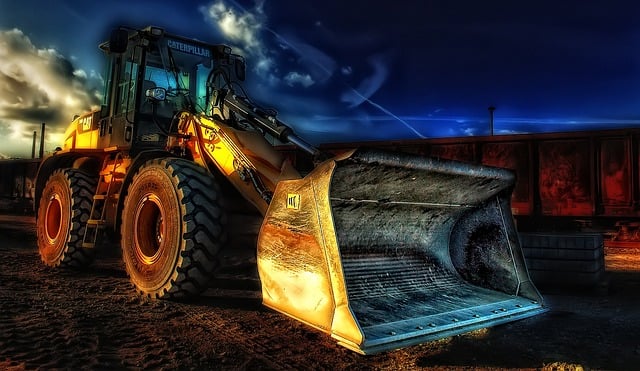Explore Roles in Equipment Operation
Operating heavy equipment requires attention to safety, basic mechanical skills, and familiarity with various machines used in construction or land work. Understanding available roles and training options may help individuals evaluate opportunities in this technical field.

What does an entry-level equipment operator job entail?
Entry-level equipment operator positions typically involve operating smaller machines or assisting experienced operators. These roles often include tasks such as operating skid steers, compact excavators, or forklifts. New operators may be responsible for basic earthmoving, material handling, or site preparation work. They usually work under close supervision, learning to maneuver equipment safely and efficiently while adhering to job site protocols and safety regulations.
Which types of machines are commonly used in construction roles?
Construction sites employ a wide array of heavy equipment, each designed for specific tasks. Some of the most common machines include:
- Excavators: Used for digging, trenching, and material handling
- Bulldozers: Ideal for pushing large quantities of earth or debris
- Backhoes: Versatile machines combining a loader bucket with an excavator arm
- Wheel loaders: Efficient for moving and loading materials
- Graders: Essential for creating level surfaces and road construction
- Cranes: Used for lifting and moving heavy loads vertically and horizontally
Operators may specialize in one type of machine or become proficient in operating multiple equipment types, increasing their versatility and job opportunities.
What are the basic requirements for heavy equipment operation?
To become a heavy equipment operator, individuals typically need to meet the following requirements:
- High school diploma or equivalent
- Valid driver’s license
- Clean driving record
- Physical fitness and ability to work in various weather conditions
- Basic mechanical aptitude
- Ability to read and interpret plans and blueprints
- Completion of a vocational program or apprenticeship in heavy equipment operation
- Certification from organizations like the National Commission for the Certification of Crane Operators (NCCCO) for specific equipment types
Additionally, many employers require operators to pass drug tests and background checks due to the safety-critical nature of the job.
How do job functions vary by equipment type?
Different types of heavy equipment require unique skill sets and perform distinct functions on job sites. For example:
- Excavator operators focus on digging, trenching, and material handling. They must have excellent depth perception and the ability to work in confined spaces.
- Bulldozer operators primarily push and level large amounts of earth or debris. This role requires strong spatial awareness and the ability to create precise grades.
- Crane operators lift and move heavy loads, often at great heights. They need exceptional hand-eye coordination and the ability to communicate effectively with ground crews.
- Grader operators create level surfaces for roads and foundations, requiring a high degree of precision and attention to detail.
Understanding these differences can help aspiring operators choose a specialization that aligns with their interests and strengths.
What career advancement opportunities exist in equipment operation?
Equipment operation offers various paths for career growth and advancement. As operators gain experience and skills, they may:
- Become lead operators or foremen, overseeing teams of less experienced operators
- Specialize in operating more complex or specialized equipment, such as tower cranes or tunnel boring machines
- Transition into equipment maintenance or repair roles
- Move into project management or site supervision positions
- Start their own equipment rental or contracting businesses
Continuous learning and obtaining additional certifications can significantly enhance an operator’s career prospects and earning potential.
How much do equipment operators typically earn?
Salaries for equipment operators can vary widely based on factors such as experience, location, equipment specialization, and industry. Here’s a general overview of salary ranges for different equipment operator roles:
| Equipment Type | Entry-Level Salary | Experienced Operator Salary |
|---|---|---|
| Excavator | $35,000 - $45,000 | $60,000 - $80,000 |
| Bulldozer | $32,000 - $42,000 | $55,000 - $75,000 |
| Crane | $40,000 - $50,000 | $70,000 - $100,000+ |
| Grader | $35,000 - $45,000 | $60,000 - $80,000 |
| Backhoe | $30,000 - $40,000 | $50,000 - $70,000 |
Prices, rates, or cost estimates mentioned in this article are based on the latest available information but may change over time. Independent research is advised before making financial decisions.
Equipment operation offers a rewarding career path for those who enjoy working with machinery and contributing to large-scale construction projects. By understanding the various roles, requirements, and opportunities within this field, individuals can make informed decisions about pursuing a career in heavy equipment operation. Whether specializing in excavator jobs or exploring other equipment types, this industry provides ample room for growth, skill development, and professional advancement.
The shared information of this article is up-to-date as of the publishing date. For more up-to-date information, please conduct your own research.




